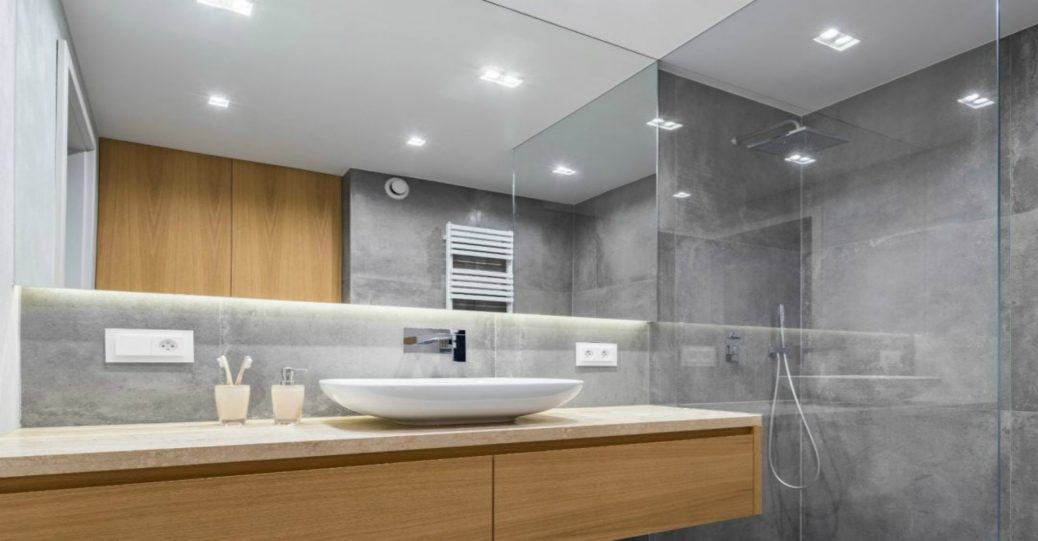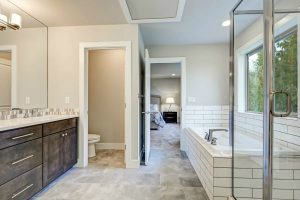

Safety glazing is a feature for some types of glass like windows and shower doors that make the glass harder to break, as well as safer when broken. The benefit of safety glazing is that it reduces the risk of glass breaking and reduces the danger caused by broken glass. Safety glass is used in some applications, including commercial glass, automobile applications, bathrooms and shower glass, and other glass doors, windows, and shopfronts. Here we look at what constitutes safety glazing and when you might need it for your glass installations.
List of Contents
Safety glazing is the process used to make glass less susceptible to breakage, and less dangerous when broken. While there are several different types of safety glazing, the two most common types are tempered glass and laminated glass. Tempered and laminated glass are both required to be permanently labeled indicating their glazing type, usually by etching in the corner.
Tempered glass is processed by controlled chemical or heat treatment to increase strength when compared to standard glass. Tempered glass balances the internal stresses on the glass, and causing the glass to break into small pebble-like pieces when shattered, rather than sharp panes.
Laminated glass consists of layers of glass and plastic held together by a binding interlayer. Laminated glass is also usually tempered to avoid the formation of dangerous shards, while the interlayer also prevents glass fragments dispersing.
In addition to the criteria set above, certain situations require safety glazing according to minimum standards set by the International Residential Building Code. If the codes if you state differs at all to this, it’s important to keep in mind that the stricter code applies.

The codes that define where safety glazing needs to be installed are strictly enforceable by law. Other homeowners and contractors may misunderstand that Safety Glass Codes only apply to new houses, but this is not the case. The codes are enforceable for new, old and remodeled homes.
Safety glazing is required for any fixed or operable panel of glass that meets these criteria:
Ensuring you have the right safety glazing in your home or business is essential to meet strict building codes and keep your buildings and occupants safe. If you need more information on safety glazing and whether it’s a requirement for your project, talk to the glass professionals at Pleasanton Glass for the most up to date information.